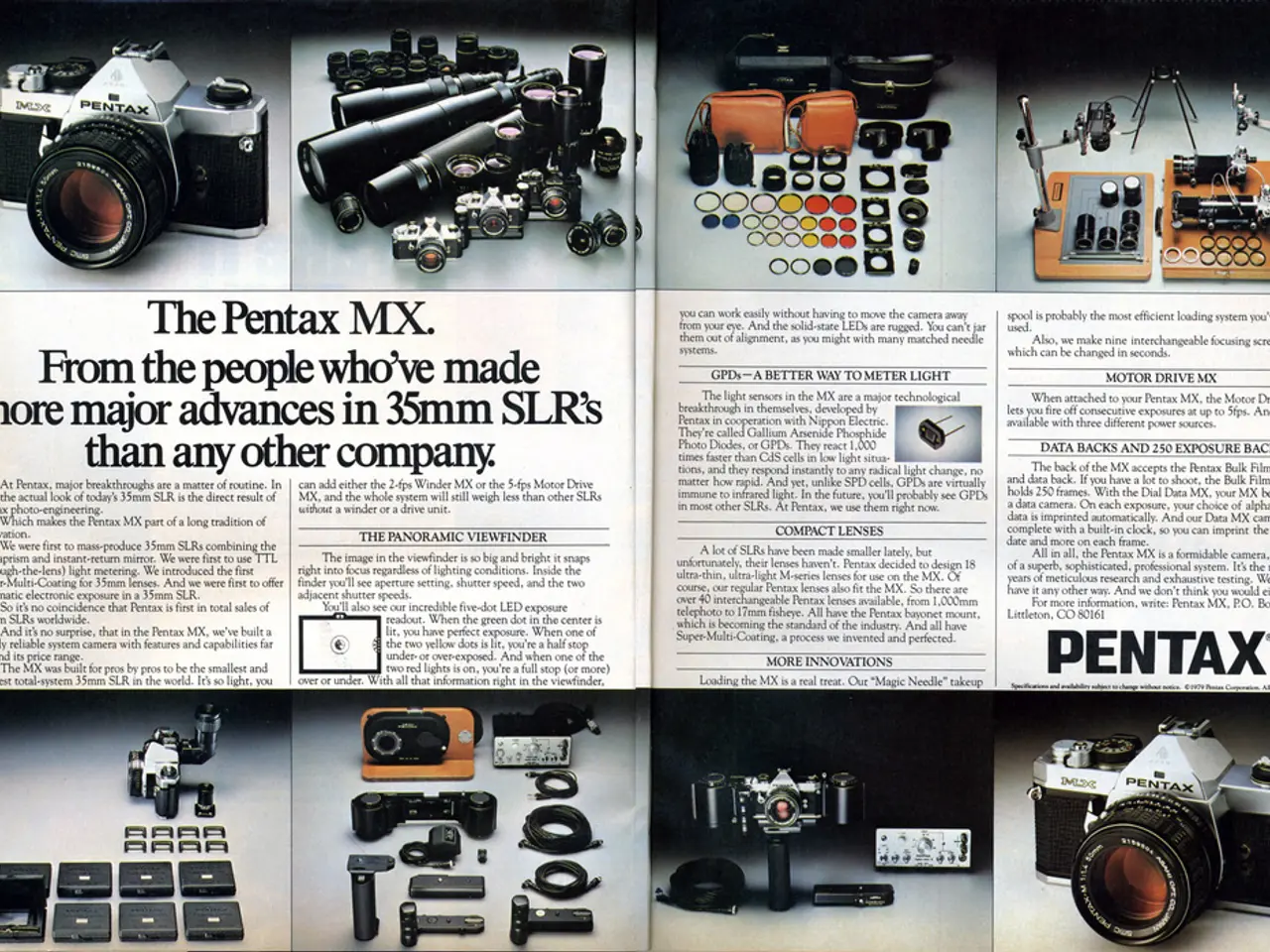Are Arri's renowned film cameras up for potential acquisition?
Arri Group's Potential Sale: Implications for the Film Industry
In a significant development, German cinema camera manufacturer Arri Group is considering a full or partial sale of its business operations. This potential move could have far-reaching implications for the filmmaking industry, given Arri's influential role at the high end of the professional cinema equipment market.
Industry Shakeup
Arri is a cornerstone of the high-end cinema camera and lighting sector, having supplied cameras like the Alexa series used on numerous Academy Award-winning films. A sale could disrupt this legacy, affecting how innovations and product support evolve in the future.
Change in Strategic Direction
With new ownership—whether minority or majority stakeholders—the company’s business strategy could shift. This might impact product development, pricing, and customer relationships within the filmmaking community, which has relied on Arri’s stable leadership and technological expertise for over a century.
Market Consolidation or Diversification
Depending on the buyer, the sale might lead to consolidation in cinema technology markets (if a large corporation acquires Arri) or diversification if investors focus on new growth areas or restructuring. Arri’s recent work with consultants to streamline its business indicates a preparation for such changes.
Effect on Innovation and Product Releases
Arri recently launched the Alexa 35 Xtreme, showcasing ongoing technological advancement. Ownership changes could either accelerate or slow down innovation depending on new priorities and investment capacity.
Global Filmmaking Impact
Arri operates globally with offices near major film studios, including Hollywood. Any shift in its ownership or operational focus could ripple through international film production, potentially affecting camera availability, rental markets, and technical support worldwide.
Uncertainty and Speculation
As of now, talks are preliminary with no confirmed sale. The company and its owners have not committed to a sale plan, meaning the full scale of impact remains uncertain but significant due to Arri's industry stature.
The Alexa 35 Xtreme, a huge upgrade to its flagship cinema camera, features frame rates up to 660fps and introduces the new Arricore codec. This innovative camera technology underscores Arri's commitment to pushing the boundaries of cinematic artistry.
Arri Group has offices in 16 countries, including key facilities in Burbank, California. In recent years, the company has undergone changes, selling its lighting subsidiary Claypaky to Chinese manufacturer EK Inc last year and facing challenges in its film equipment rental business due to the post-pandemic production boom and the 2023 actors and writers strikes.
Global spending on film and television production fell 16% to $10.4 billion / £7.7 billion / AU$15.9 billion in the second quarter of 2025. Despite these challenges, Arri continues to be one of the biggest names in cinema production, having survived world wars, multiple economic crises, and technological changes such as the shift from film to digital.
Tom May, a freelance writer and editor specializing in art, photography, design, and travel, has been editor of Professional Photography magazine, associate editor at Creative Bloq, and deputy editor at net magazine. May has also worked for a wide range of mainstream titles including The Sun, Radio Times, NME, T3, Heat, Company, and Bella. As the filmmaking industry navigates potential changes, journalists like Tom May will continue to provide insights and analysis to help the community adapt and thrive.
In light of the potential sale of Arri Group, the future of innovations and product releases, such as the recently unveiled Arri Alexa 35 Xtreme, could be accelerated or slowed down. Given Arri's worldwide presence and role as a leading player in high-end cinema camera and lighting sector, any shift in its ownership or operational focus could deeply affect global film production, including camera availability, rental markets, and technical support across various countries.
A sale might bring about changes in Arri's business strategy, potentially impacting product development, pricing, and customer relationships within the filmmaking community. This strategic change could either lead to consolidation in cinema technology markets if a large corporation acquires Arri or diversification if investors focus on new growth areas or restructuring.
As industry speculation rises, journalists like Tom May, who specializes in art, photography, design, and travel, will continue to offer insights and analysis to help the filmmaking community navigate and adapt to the changes to come. With global spending on film and television production experiencing fluctuations, Arri's adaptability over the years, surviving world wars, multiple economic crises, and technological shifts, has solidified its position as one of the key players in cinema production.




